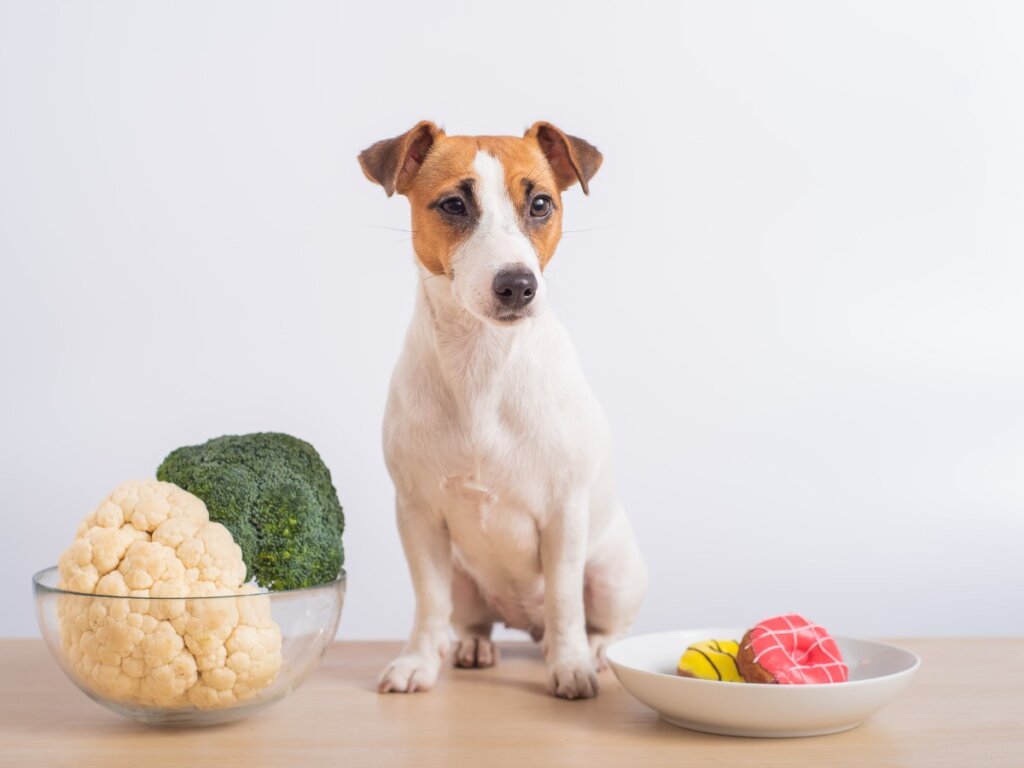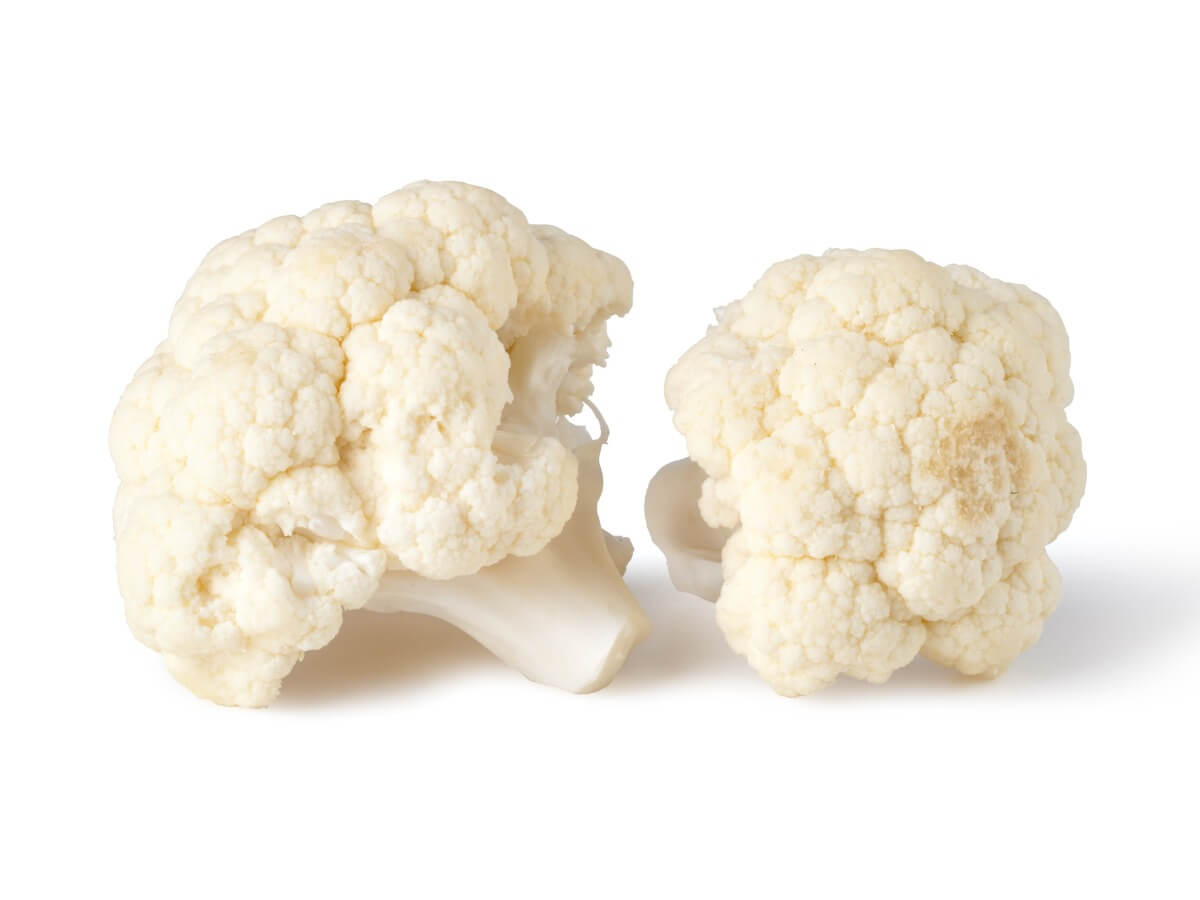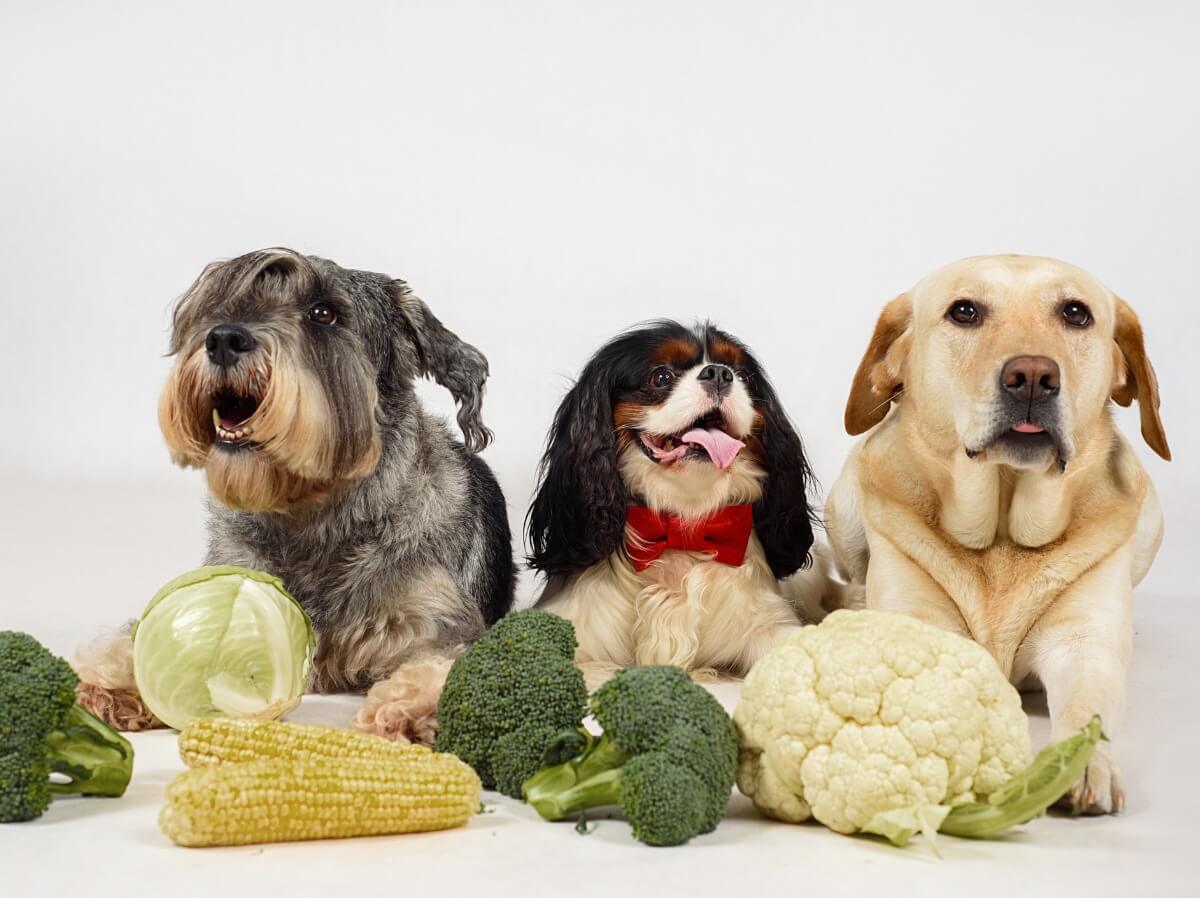Can Dogs Eat Cauliflower?
Cauliflower is a nutrient-dense vegetable that is currently grown throughout the world. Find out if this vegetable can contribute positively to a dog's body.

Cauliflower is a cruciferous vegetable, just like cabbage and broccoli. Next up, find out if this low-calorie and nutrient-packed food can be consumed by your dog without any problems.
Cauliflower composition
Cauliflower is composed mainly of water and has a low content of carbohydrates, protein, and fat, which makes it a vegetable with little caloric intake. In addition, it’s considered a source of fiber, vitamins and minerals. It’s rich in potassium and phosphorus and also contains discrete amounts of iron, magnesium and calcium.
This vegetable comes from a plant with thick green leaves and a white head, which is usually the part that’s consumed. According to the United States Department of Agriculture, 100 grams (4 oz) of raw cauliflower is made up of the following:
- Water: 92.07 grams
- Energy: 25 kilocalories
- Protein: 1.92 g
- Carbohydrates: 4.97 g
- Total fiber: 2 g
- Total sugars: 1.91 g
- Calcium: 22 milligrams
- Iron: 0.42 mg
- Magnesium: 15 mg
- Phosphorus: 44 mg
- Potassium: 299 mg
- Sodium: 30 mg
- Zinc: 0.97 mg
- Folate: 57 micrograms (μg)
- Vitamin C: 48.2 mg
- Vitamin E: 0.08 mg
- Vitamin K: 15.5 micrograms (μg)

Should dogs eat cauliflower?
So, is cauliflower one of the vegetables that can be included in the diet of dogs? Yes! However, it’s recommended that this cruciferous should be a supplement in the dog’s diet and not consumed frequently. Therefore, it’s important to consult with a veterinarian to see if the amount of cauliflower you give your dog is correct, and to check it doesn’t have any allergic or serious reaction to it.
Benefits of giving cauliflower to dogs
Cauliflower has great nutritional qualities that can benefit the dog, as long as it doesn’t become the basis of your pet’s diet. For example, it’s rich in vitamins of the B complex and contributes to the functioning of the nervous system, skin, and metabolizing glucose.
On the other hand, vitamin K helps blood clotting processes and protein metabolism.
Potassium helps in the conduction of nerve impulses and in the transport of molecules to the cell. Phosphorus is essential for the maintenance of bone structure and teeth. Calcium, meanwhile, is vital for bones, blood clotting, and muscle contractions.
How to cook cauliflower for dogs?
If you want to give your dog cauliflower, remember that it should be a moderate portion to avoid digestive problems. In general, it’s recommended that the presence of fruits and vegetables doesn’t exceed 10-15% of the total daily diet of the animal. Thus, you can give this cruciferous vegetable to your dog as a small part of his food or as a reward.
It should be noted that your pet’s intake of cauliflower should be proportional to its age and size. This is necessary so as not to interfere in any way with the dog’s appetite for the main meals of the day, as this vegetable shouldn’t be its main meal.
It’s preferable to cook the cauliflower so that your canine can ingest it more easily and thus avoid possible suffocation or digestive complications, because remember that dogs tend to swallow pieces of raw vegetables whole. Prepare the vegetables by steaming, sauteeing, or baking them, without adding sauces or salt. Also, don’t forget to break it into small pieces.
Can dogs eat raw cauliflower?
You can also use vegetable raw in your dog’s diet. In that case, remember to wash the cauliflower very well to prevent your pet from acquiring bacteria after eating it. Remove the central stem and don’t add salt or other seasonings to it. Keep in mind that if your dog is elderly, you can offer pureed cauliflower so that they don’t have any problems chewing it.
In conclusion, cauliflower for dogs can be a good complementary option, without neglecting other vegetables and fruits that also contribute to a dog’s well-being. On the other hand, don’t forget to take your pet to veterinary check-ups that will help you know if you’re providing it with the correct diet.

Remember that all animal’s bodies function differently, and what may be nutritious for some animals may harm others. For this reason, it’s always best to check with a professional who will evaluate your dog’s development, especially if you notice negative changes in them after varying their diet.

